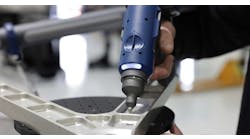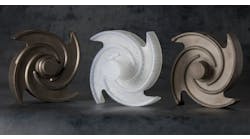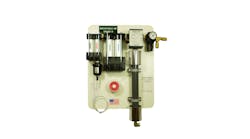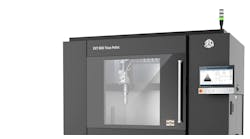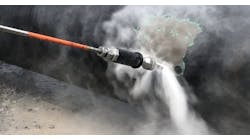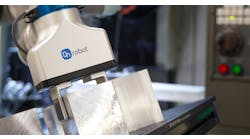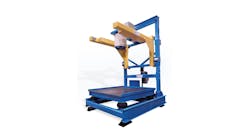HITACHI HIGH-TECH ANALYTICAL SCIENCE introduced the OE750 optical emission spectrometer for verifying demanding metals specifications in foundries and metal production. "In the past, foundries and metal-processing businesses had to choose between high-performance analysis and instrumentation that was in their price range," according to Wilhelm Sanders, Hitachi OES product business development manager. "The OE750 offers comprehensive metals analysis in one accessible package."
Complex supply chains and increased use of scrap metal have put foundries under increasing pressure to control tramp and trace elements in the melt. The OE750 offers a level of performance not previously seen with optical emission spectrometers of this class. It covers the entire spectrum of elements in metal and has some of the lowest detection limits possible. The result is an analyzer that has the capability of much more expensive instruments, bringing high-quality analysis within reach.
New optical concepts are incorporated, including four with pending patents, using CMOS detector technology to achieve high level of optical resolution and a large dynamic range of the OE750. As a result, the new analyzer has a very large wavelength range, meaning it can measure the entire range of elements within metals at ppm levels. This is essential for meeting today’s tight metals specifications and the analyzer can meet the requirements of the new ASTM E415 test method for carbon and low-alloy steel.
For aluminum casting, the OE750 can determine phosphorous to very low limits in near-eutectic and hypereutectic aluminum-silicon alloys. It can analyze antimony, bismuth, strontium and sodium, and tramp and trace elements, ensuring these can be controlled within the aluminum melt for optimal structural modification. The optics design results in a fast start-up time, as the volume occupied by the instrument’s optics is relatively small. This aids high throughput production, where the quality of the melt needs to be verified at several points.
In addition to the new optics design, the OE750 has other technical features that support high volume metals analysis: • It has a new, sealed spark stand with optimized laminar flow. This reduces argon consumption, reduces the likelihood of contamination and drastically reduces maintenance requirements. • A mid-pressure system with low-pressure argon purge cuts down the pump usage. This reduces the pump's power consumption by 90% and enables an oil-free design to be used, increasing reliability and instrument uptime. This makes the OE750 highly reliable with low operating costs.
In addition to the new hardware technology, the OE750 performance is enhanced by new software. For example, it includes the Hitachi Grade Database, with more than 12 million records for over 339,000 materials from 69 countries and standards, reducing time and potential errors from manually consulting grade catalogues. Optional charge correction software automatically calculates the right quantity of material to add to a melt to bring it into spec.
Learn more at https://hha.hitachi-hightech.com
